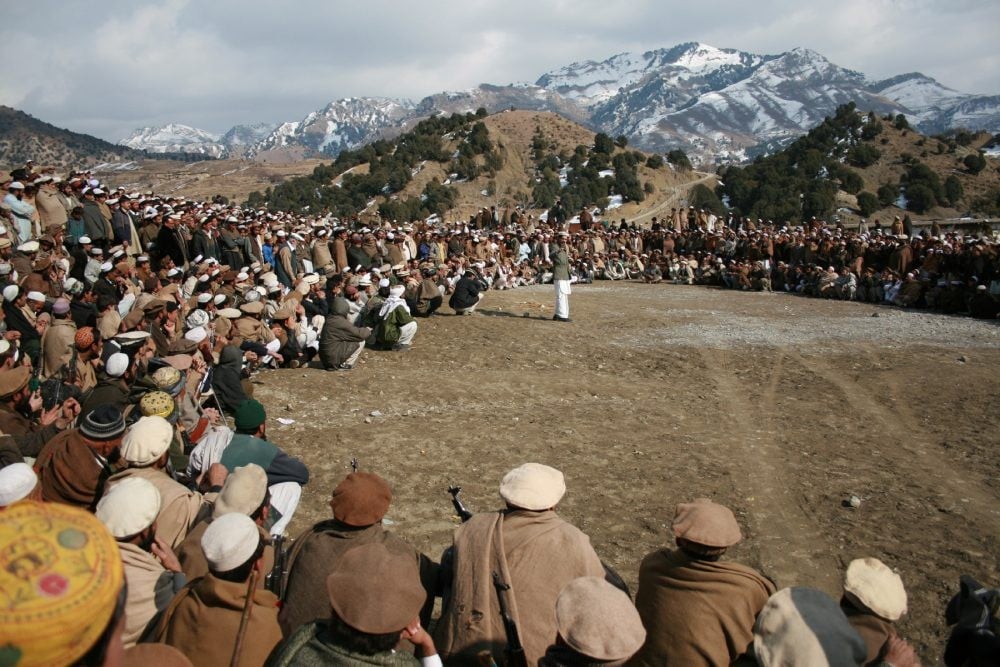

‘Fata reforms’ is a cliché a majority of people in the country seem to have grown up with. It is a moral position that everyone found convenient to assume but one that remained strangely static. Everyone felt helpless in the face of this special status of one part of the country, a land where the law of the land and constitution did not operate, the ilaqa ghair, a den of crime where, in the last two decades, only ‘terrorists’ roamed who could only be eliminated by ‘military operations’.
The hundreds and thousands of displaced people -- from what existed as a ‘dehumanised’ territory in the rest of the country’s imagination -- did not really matter. Worse still, their migration to big faraway cities became a cause of concern for those already residing there; as if they carried seeds of ‘terrorism’ within.
And yet Fata mattered. It always did and hence the cliché -- Fata reforms. The area’s geography became a curse, a playground for the region’s strategic imperatives. The draconian Frontier Crimes Regulations (FCRs) operated in an opaque manner as entire tribes and villages faced collective punishment under these regulations. The voice of the ordinary Pashtun from the region, especially in the last two decades, was never heard in the mainland, except when there was collateral damage in selective drone attacks.
To their credit, the political governments continued to strive for a solution to this conundrum -- in the form of political and rights-based reforms. They succeeded only mildly and slowly. The last PML-N led government initiated a renewed reform process under a committee headed by Senator Sartaj Aziz in 2015 that made a set of recommendations to "mainstream" Fata. The consultations it had with the tribal heads and other people led them to the broad consensus that Fata must be merged with Khyber Pakhtunkhwa (KP).
In the absence of a referendum, either in Fata or KP, the merits of this consensus can be legitimately questioned; yet most opinion that is vocalised on Fata’s status, from all quarters, has been in favour of its merger with KP. The only opposing voices came from JUI-F and its head Maulana Fazlur Rahman and the nationalist party PkMAP led by Mahmood Khan Achakzai. This opposition was loud enough to have kept the issue on the back burner for at least a year and a half (both being PML-N’s coalition partners in the government).
Just when everyone thought this major decision of Fata’s merger with KP was left to be decided by the next government, there came this sudden push to bring this into effect. Many analysts think the rise of Pashtun Tahafuz Movement (PTM), the rights-based movement of Pashtun youth belonging to Fata, has been instrumental in this rushed decision, even though PTM chose to stay neutral on the subject of merger.
Read also: Merger and the challenges ahead
Once the principled decision was taken, nothing seemed to have come in its way and a constitutional amendment to effect this has now been passed by the National Assembly, Senate and KP assembly and signed by the president. In our Special Report today, we have tried to focus on this historic moment in Pakistan and what all it entails.